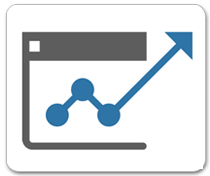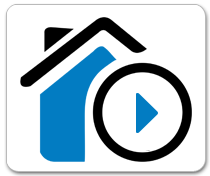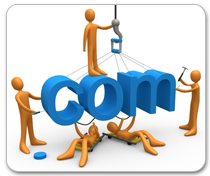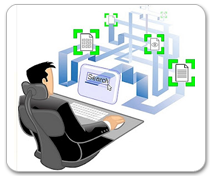
Most real estate agents don't realize -- or perhaps don’t remember -- that not long ago, there were many real estate portal startups, but all the ones that try to comply with each MLS’s (Multiple Listing Service) and NAR’s (National Association of Realtors) rules failed -- except Realtor.com, of course. Trulia and Zillow can only dominate this space because they went around the MLSs, while the MLSs and NAR were putting all of their efforts into crowning Realtor.com as king.
 The Problem
The Problem
Most real estate agents rely on a website vendor like Agent BizzUp to host their IDX (Internet Data Exchange) website. But these vendors have to accept what is sometimes a 12-page contract agreement with each MLS (Multiple Listing Service) to provide this service. Some of the requirements of these contracts are counterproductive to the purpose of having an IDX website. For example:
- I know of at least one MLS that requires that any listing search on your website should produce less than 100 results.
- Many MLSs require exclusivity, which restricts you from having IDX feed from more than one MLS.
- Some MLSs will go as far as forcing you to add/remove certain design elements from your website.
- And then there are the fees. Some MLSs charge vendors as much as $10,000+ per month to license the data. One of the largest IDX vendors in the U.S. reported that their annual fees to MLSs are well over $1 million.
Other than these MLSs beating on their chest to show that they are the masters of listing data, there is little purpose to many of these requirements. Now, these requirements would be tolerable if all vendors were required to play by the same rules, but even that's not true. For example:
- Some MLSs just outright limit their members to 1-3 vendors and slam the door shut on every other vendor.
- Some MLSs set different requirements for different IDX websites.
- Remember those MLSs mentioned above that require exclusivity? Well, their listing data is available on Realtor.com, right alongside listing data from other MLSs.
- Even the fees that they charge to vendors are different; some MLSs will pick and choose who gets a pass from paying.
 The Cause
The Cause
While there's a lot of blame to go around, the fact remains that Trulia and Zillow have cornered the real estate market and have wedged themselves between brokers and home buyers.
Arguably, the first blow came from the MLSs and the National Association of Realtors. The situation is similar to the web technology field. Old companies with their traditional mindset and ways of doing things have always had a hard time transitioning to doing business online. New companies that start out as "web first" companies don't have to carry old baggage with them from a pre-online period. This is why, in the early 90s, Disney's go.com, Microsoft's msn.com, and countless other old media companies were unable to compete with Yahoo! Ironically, just a few years later, it's partly the same reason why Yahoo!, after hiring an old media CEO, was unable to compete with Google. It's also why newspapers could not compete with job portals like Monster.com and Craigslist. It's also why Walmart, Barnes and Noble, and many other businesses cannot compete with Amazon.com.
Now that MLSs are planning to develop their own real estate portals and lead generating sites, it’s easy to see how it will be a disastrous mistake that further rewards organizations that avoid MLSs altogether.
One thing should be made very clear -- this article is not talking about all MLSs. In fact, most MLSs are honest and fair companies that are superb at what they do and genuinely serve the needs of their clients.
 The Solution
The Solution
At Agent BizzUp, we've always believed that MLSs will continue to play a vital role in the future of real estate technology. But they should be doing more to aggregate the data that they possess on a level playing field, which is where their business primarily thrives. They should not be playing king makers. Take Google, for example -- their business model is to provide access to the world’s information without showing partiality to any one entity, no matter how deep its pockets may be. As a result of this, companies that provide great products and services, those that draw many users’ attention and mentions, will thrive.
We propose that all MLSs move to RETS (Real Estate Standards Transactions), simplify their requirements, and drop their IDX licensing fees. Some may view this as outrageous, but examine the possibility further and it becomes quite rational.
Some MLSs will complain that there is a cost to host and maintain the IDX service, but that simply should be part of the cost of doing business. Facebook profiles cost a lot more to host and maintain, but they could not pass that cost over to their user base without a justifiable uproar. RETS, when implemented properly, eliminate a lot of the maintenance and support issues. By making these changes, MLSs will be removing the hurdles agents have to jump over to be competitive, dissolving the advantages that Trulia and Zillow have gained from avoiding the MLSs for so many years.
What do you think, should MLSs be playing the role of king makers?

 Local Events Show Engagement With the Local Community
Local Events Show Engagement With the Local Community Regular Event Listings Up Search Engine Rankings
Regular Event Listings Up Search Engine Rankings Local Events Bring People Back
Local Events Bring People Back
 Reality check …
Reality check … The floodgates open
The floodgates open Control is key
Control is key Take control
Take control
 1. More Innovations that Lead to Social Connection
1. More Innovations that Lead to Social Connection 2. Mobile Web Presence Will No Longer Be Optional
2. Mobile Web Presence Will No Longer Be Optional 3. Videos Will Drive a Lot of Sales
3. Videos Will Drive a Lot of Sales
 You Lose One-on-One Relationships
You Lose One-on-One Relationships You Lack Control Over Your Web Presence
You Lack Control Over Your Web Presence SEO Helps the Providers, Not You
SEO Helps the Providers, Not You Consumers Prefer Local Sites
Consumers Prefer Local Sites


